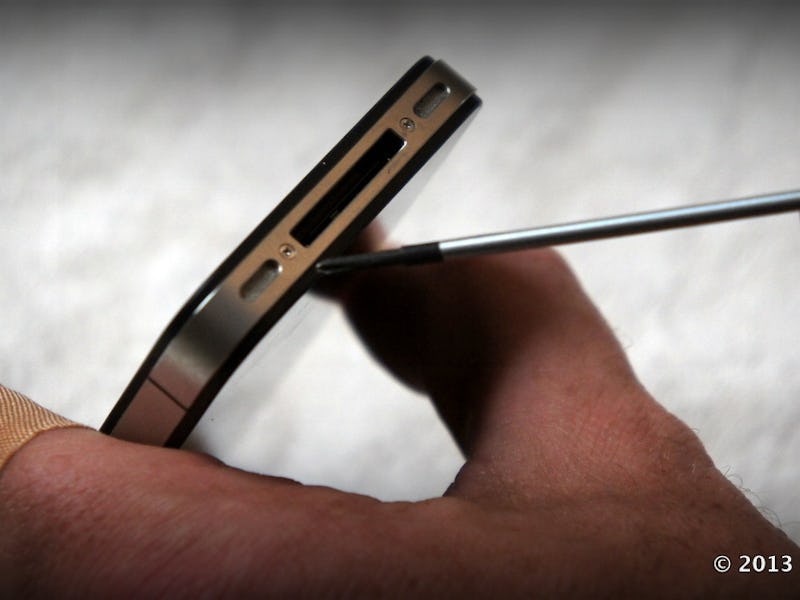Why Apple Wants to Outlaw People From Fixing Their Own iPhones
Tech giants around the country want to keep repairs in-house.

A broken smartphone is like a broken limb. Suddenly, something you rely on every day is a hobbled version of its former self, and the convenience and ease with how you got through life before it takes a severe step back. Naturally, capitalism ensures that those who stand to gain the most from making smartphone repairs prevent any competition.
Enter Apple: the tech giant is currently lobbying against a New York state bill that would compel electronics companies to make available information that would make it easier for customers and third-party repair businesses to fix broken smartphones.
The bill is called the “Fair Repair Act.” Its purpose reads that it will “require manufacturers who operate and sell in New York State to make available diagnostic and repair information for digital electronic parts and machines.”
That specifically means that Apple would be legally mandated to sell replacement parts and tools to the public, prohibit software locks that place limits on repairs, and require companies to make repair guides available to consumers.
Apple, along with other companies like Verizon, Toyota, Johnson & Johnson, and several tech industry trade organizations, are all working together to oppose its passage in the New York state legislature. As Motherboard reports, Apple is likely opposing similar bills in as many as 11 other states, but New York’s lobbying disclosure laws mean it’s the first time the company is on the public record for its work in advocating against the Fair Repair Act.
Want to fix your iPhone at home? Apple CEO Tim Cook would rather you not.
Apple has a pretty big financial incentive for lobbying against such laws. American consumers spent $4 billion on cell phone repairs in 2015 alone. The Cupertino, California-based tech behemoth makes a ton of money by getting customers who’ve just bought a new MacBook or iPhone to purchase AppleCare+ insurance, which incentivizes customers to get their devices fixed by authorized Apple professionals. Update 5/22/17: A reader who works as an Apple technician points out that “all manufacturer related issues regarding hardware, as long as there is no physical damage to a device, are typically covered for repairs or replacement,” and that “full phone replacements due to accidental damage typically cost $99 in many instances, but may vary based on the phone model.”
It’s impossible to figure out exactly how much Apple makes off of repair services, but Apple Services did pull in $7.04 billion in sales last year. Even a fraction of that is a pretty hefty sum for the company to want to safeguard.
Third-party repair shops or savvy customers who know what they’re doing will not necessarily buy premium repair parts from the device manufacturers themselves. A store down the block might use a much cheaper replacement screen for an iPhone instead of the much more expensive part Apple makes. Although those repairs are free under programs like AppleCare+, customers must still purchase them. In addition, Apple probably prefers other customers who aren’t covered to still come directly to them for paid repairs, instead of other vendors.
Apple has provided a glimpse of its reasoning in a statement to the The Guardian last year, when news broke of a DIY hack which replaced the Home button on an iPhone 6 and allowed the phone to be “bricked”:
“We protect fingerprint data using a secure enclave, which is uniquely paired to the Touch ID sensor. When iPhone is serviced by an authorized Apple service provider or Apple retail store for changes that affect the touch ID sensor, the pairing is re-validated. This check ensures the device and the iOS features related to touch ID remain secure. Without this unique pairing, a malicious touch ID sensor could be substituted, thereby gaining access to the secure enclave. When iOS detects that the pairing fails, touch ID, including Apple Pay, is disabled so the device remains secure.
Records show the tech companies and trade organizations fighting against the “Fair Repair Act” have spent $366,634 so far this year.